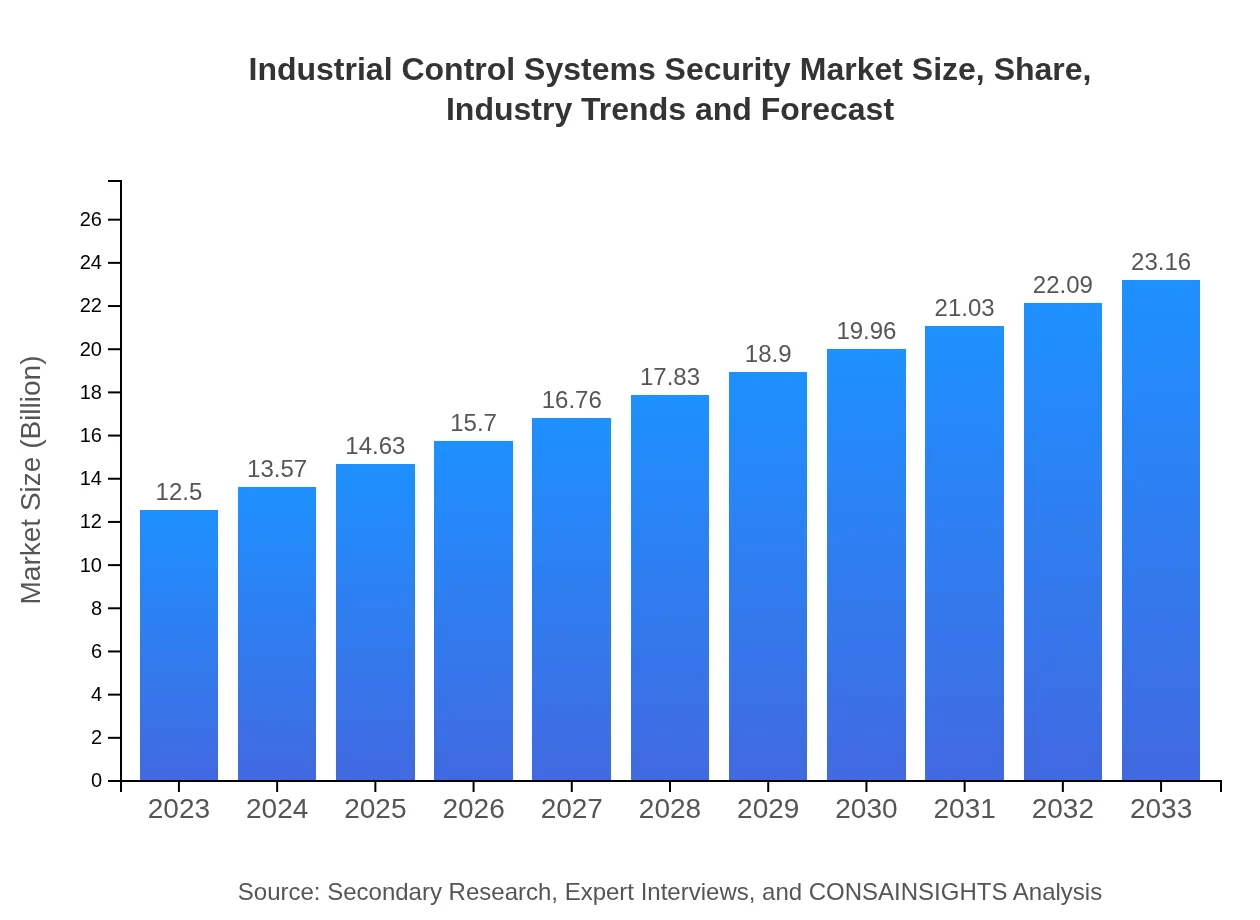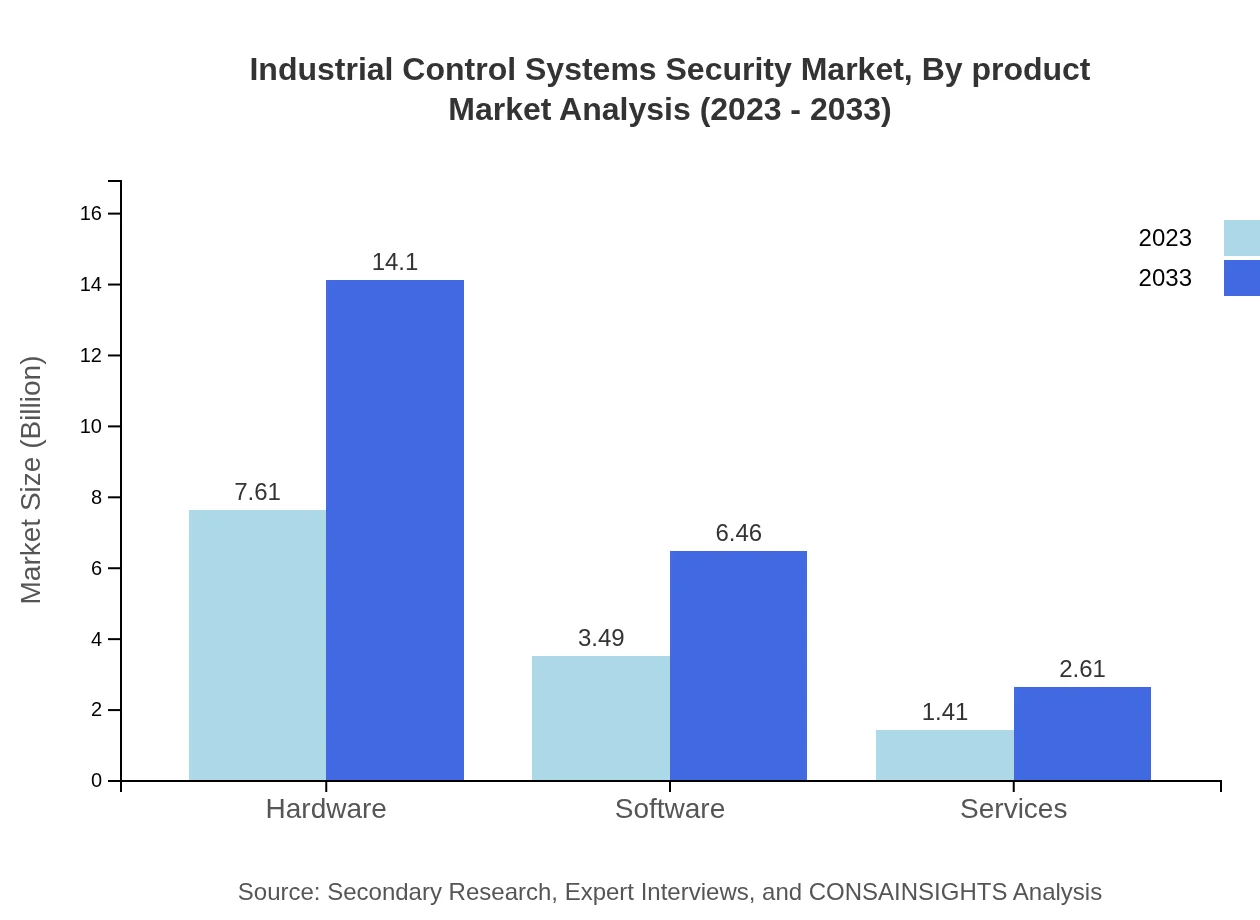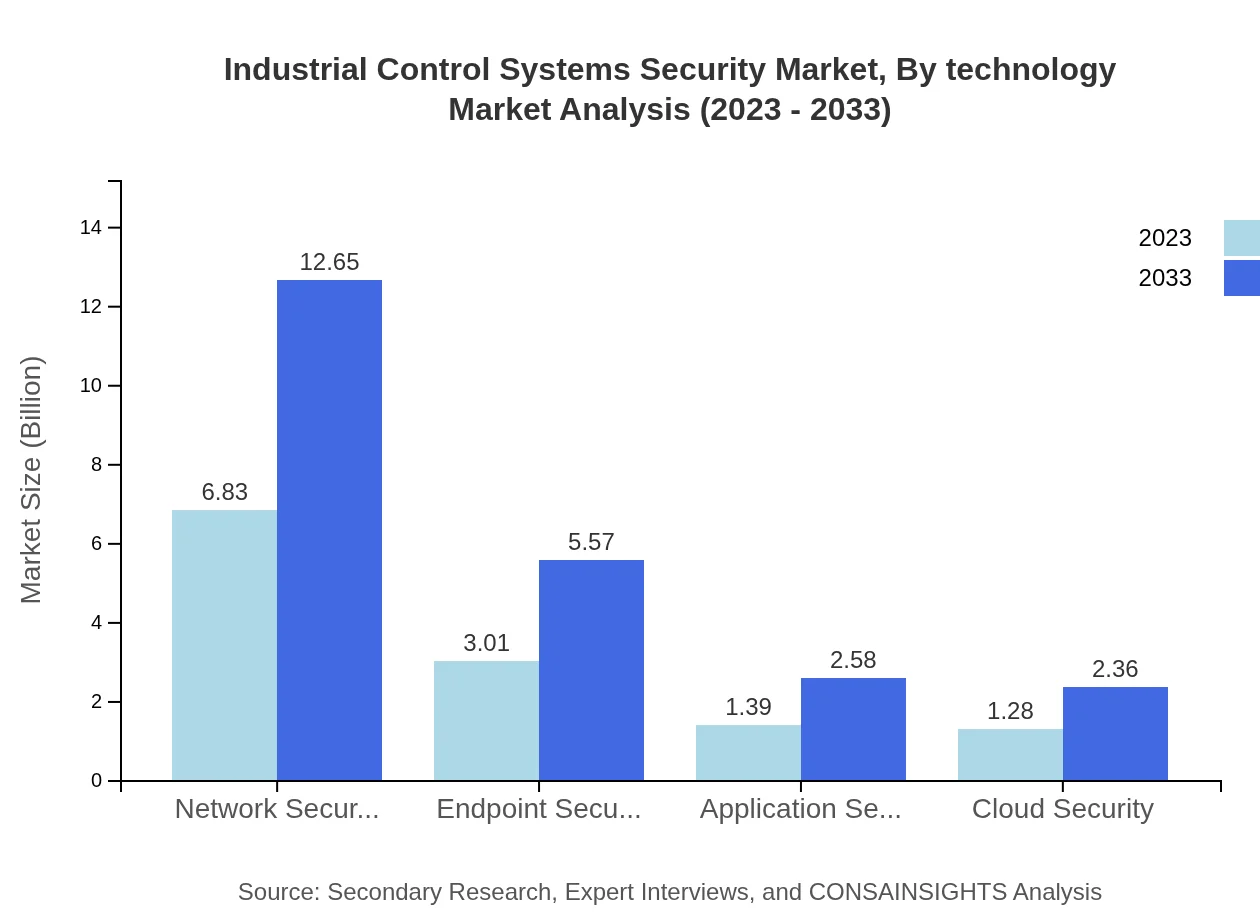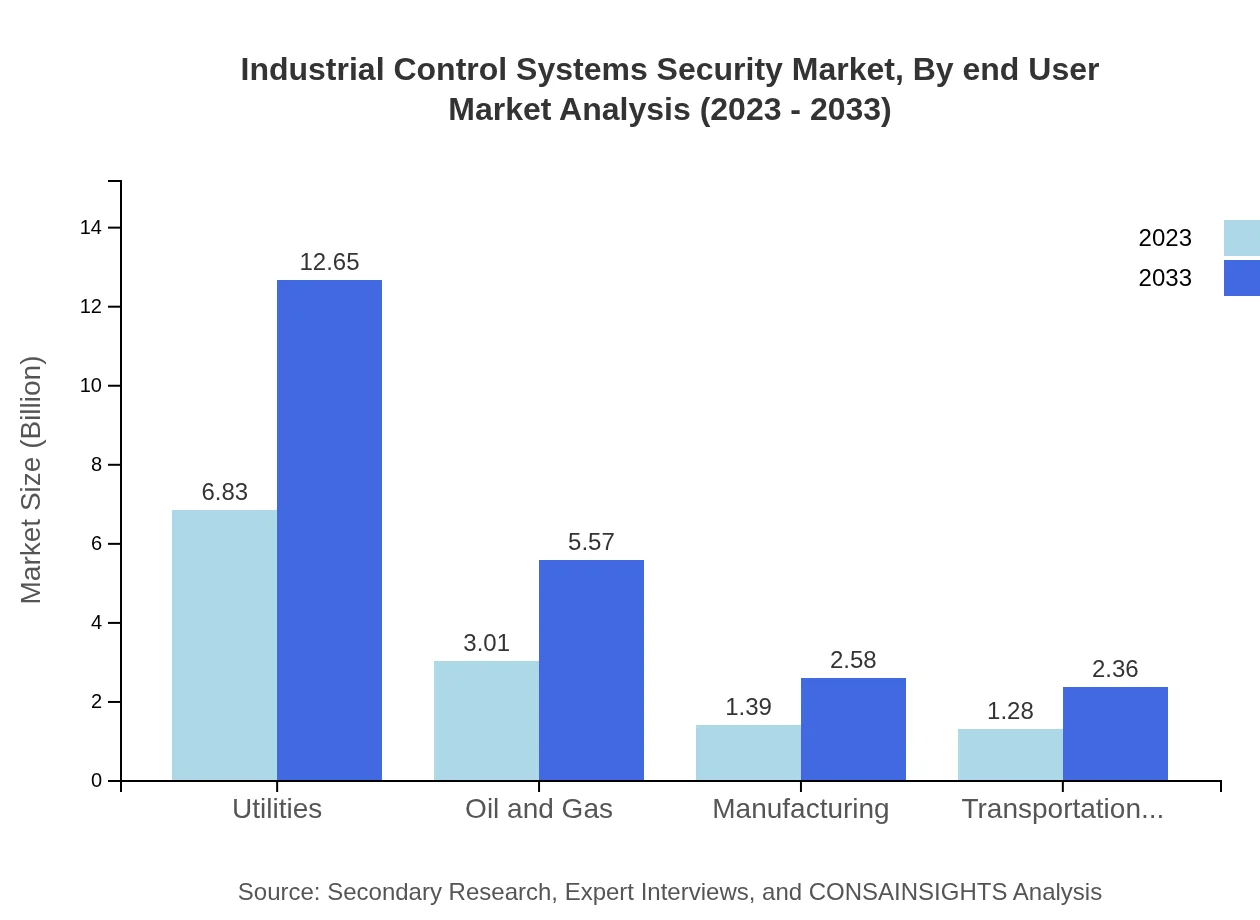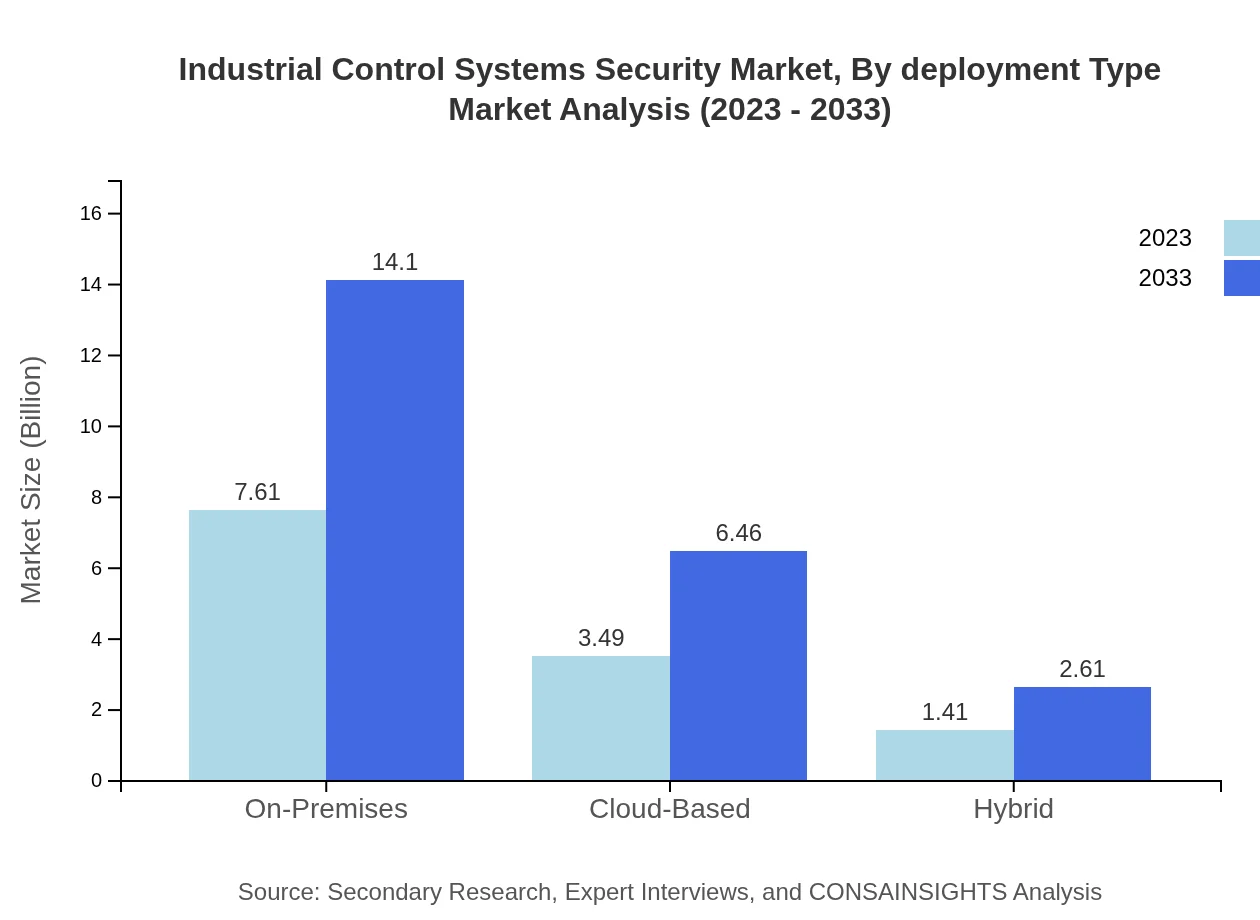Industrial Control Systems Security Market Report
Published Date: 22 January 2026 | Report Code: industrial-control-systems-security
Industrial Control Systems Security Market Size, Share, Industry Trends and Forecast to 2033
This report provides comprehensive insights into the Industrial Control Systems Security market, covering trends, segmentation, and a thorough analysis from 2023 to 2033. It aims to present an accurate forecast of growth and challenges within the industry.
| Metric | Value |
|---|---|
| Study Period | 2023 - 2033 |
| 2023 Market Size | $12.50 Billion |
| CAGR (2023-2033) | 6.2% |
| 2033 Market Size | $23.16 Billion |
| Top Companies | Schneider Electric, Honeywell , Cisco, Siemens , ABB |
| Last Modified Date | 22 January 2026 |
Industrial Control Systems Security Market Overview
Customize Industrial Control Systems Security Market Report market research report
- ✔ Get in-depth analysis of Industrial Control Systems Security market size, growth, and forecasts.
- ✔ Understand Industrial Control Systems Security's regional dynamics and industry-specific trends.
- ✔ Identify potential applications, end-user demand, and growth segments in Industrial Control Systems Security
What is the Market Size & CAGR of Industrial Control Systems Security market in 2023?
Industrial Control Systems Security Industry Analysis
Industrial Control Systems Security Market Segmentation and Scope
Tell us your focus area and get a customized research report.
Industrial Control Systems Security Market Analysis Report by Region
Europe Industrial Control Systems Security Market Report:
Europe's ICS Security market stands at $3.60 billion in 2023, with projections of $6.68 billion by 2033. The European Union's regulations towards digital security and significant investments in renewable energy infrastructure bolster market growth. However, varying national regulations can complicate industry standards.Asia Pacific Industrial Control Systems Security Market Report:
In 2023, the Industrial Control Systems Security market in Asia Pacific is valued at $2.39 billion, projected to grow to $4.42 billion by 2033. Rapid industrialization, particularly in countries like China and India, along with increased investments in smart grid technologies, are driving this growth. However, the region also faces challenges due to varying regulations and standards across countries.North America Industrial Control Systems Security Market Report:
North America leads with a market size of $4.55 billion in 2023 and is anticipated to reach $8.43 billion by 2033, driven by stringent regulatory measures, high technology adoption, and significant investments in cybersecurity. U.S. companies are increasingly prioritizing ICS security due to rising cyber threats targeting critical infrastructures.South America Industrial Control Systems Security Market Report:
The South American market, estimated at $1.18 billion in 2023 and expected to reach $2.19 billion by 2033, is growing as industries become more aware of cybersecurity threats. Constraints in budget and skilled workforce hamper faster adoption, but rising foreign investments in critical infrastructure are encouraging improvements in cyber resilience.Middle East & Africa Industrial Control Systems Security Market Report:
The Middle East and Africa market is estimated at $0.78 billion in 2023, with growth to $1.44 billion by 2033. Growth in the region is supported by increased awareness of cybersecurity threats and investments from government sectors aimed at enhancing national security frameworks.Tell us your focus area and get a customized research report.
Industrial Control Systems Security Market Analysis By Product
The security landscape is predominantly segmented into three major categories: hardware (approximately $7.61 billion in 2023), software ($3.49 billion), and services ($1.41 billion). Hardware continues to dominate due to its physical nature, providing foundational security layers, while software solutions focus on perimeter and endpoint security. Service revenues are growing as companies turn to managed security service providers for expertise.
Industrial Control Systems Security Market Analysis By Technology
Technologies such as network security and endpoint security hold significant shares within the market, with network security valued at around $6.83 billion in 2023. Endpoint and application security also play crucial roles, growing steadily due to more sophisticated attack vectors targeting organizational endpoints.
Industrial Control Systems Security Market Analysis By End User
Key end-user segments consist of utilities, oil & gas, and manufacturing sectors, with utilities expected to maintain a significant market share of about 54.6% in 2023. This is due to the criticality of service continuity in these sectors and the existing regulatory environment that compels these industries to prioritize ICS security investments.
Industrial Control Systems Security Market Analysis By Deployment Type
The deployment types include on-premises, cloud-based, and hybrid models. On-premises solutions dominate, accounting for around $7.61 billion in 2023, due to customizability and control. However, there is significant momentum towards cloud-based solutions, representing increasing flexibility and scalability for organizations adapting to remote operations.
Industrial Control Systems Security Market Trends and Future Forecast
Tell us your focus area and get a customized research report.
Global Market Leaders and Top Companies in Industrial Control Systems Security Industry
Schneider Electric:
A leader in industrial automation and control solutions, Schneider Electric provides robust cybersecurity solutions tailored to critical infrastructure sectors.Honeywell :
Honeywell is a prominent player in the ICS security space, focusing on providing integrated security solutions and advanced analytics to enhance operational safety.Cisco:
Known for its networking solutions, Cisco has made significant advancements in cybersecurity technologies relevant to ICS, emphasizing threat intelligence and network security.Siemens :
Siemens develops solutions for both automation and security, providing comprehensive offerings that integrate security into ICS environments globally.ABB:
ABB is committed to improving industrial security through innovative technologies and solutions designed specifically for the utilities and manufacturing sectors.We're grateful to work with incredible clients.









FAQs
What is the market size of industrial Control Systems Security?
The global Industrial Control Systems Security market is valued at $12.5 billion in 2023 and is projected to grow at a CAGR of 6.2%, indicating robust expansion expected over the next decade.
What are the key market players or companies in this industrial Control Systems Security industry?
Key players in the Industrial Control Systems Security market include major corporations such as Siemens, Honeywell, and ABB, which dominate both hardware and software segments, providing comprehensive solutions in security services integrated within control systems.
What are the primary factors driving the growth in the industrial Control Systems Security industry?
Growth drivers for the Industrial Control Systems Security industry include increasing cyber threats to critical infrastructure, regulatory compliance mandates, and the rising need for secure automation in industries such as manufacturing and utilities.
Which region is the fastest Growing in the industrial Control Systems Security?
Asia Pacific is the fastest-growing region in the Industrial Control Systems Security market, expected to rise from $2.39 billion in 2023 to $4.42 billion by 2033, reflecting a tranquil increase in industrial activity and security needs.
Does ConsaInsights provide customized market report data for the industrial Control Systems Security industry?
Yes, ConsaInsights offers customized market reports tailored to specific needs in the Industrial Control Systems Security sector, allowing clients to gain insights tailored to their unique business strategies and market challenges.
What deliverables can I expect from this industrial Control Systems Security market research project?
Deliverables from this market research project will include comprehensive reports detailing market size, growth forecasts, competitive analysis, and insights into market segments and geographic trends specific to Industrial Control Systems Security.
What are the market trends of industrial Control Systems Security?
Current trends in the Industrial Control Systems Security market feature an increased focus on cloud-based security solutions, integration of AI for threat detection, and a shift towards proactive security models enhancing resilience against cyber threats.

